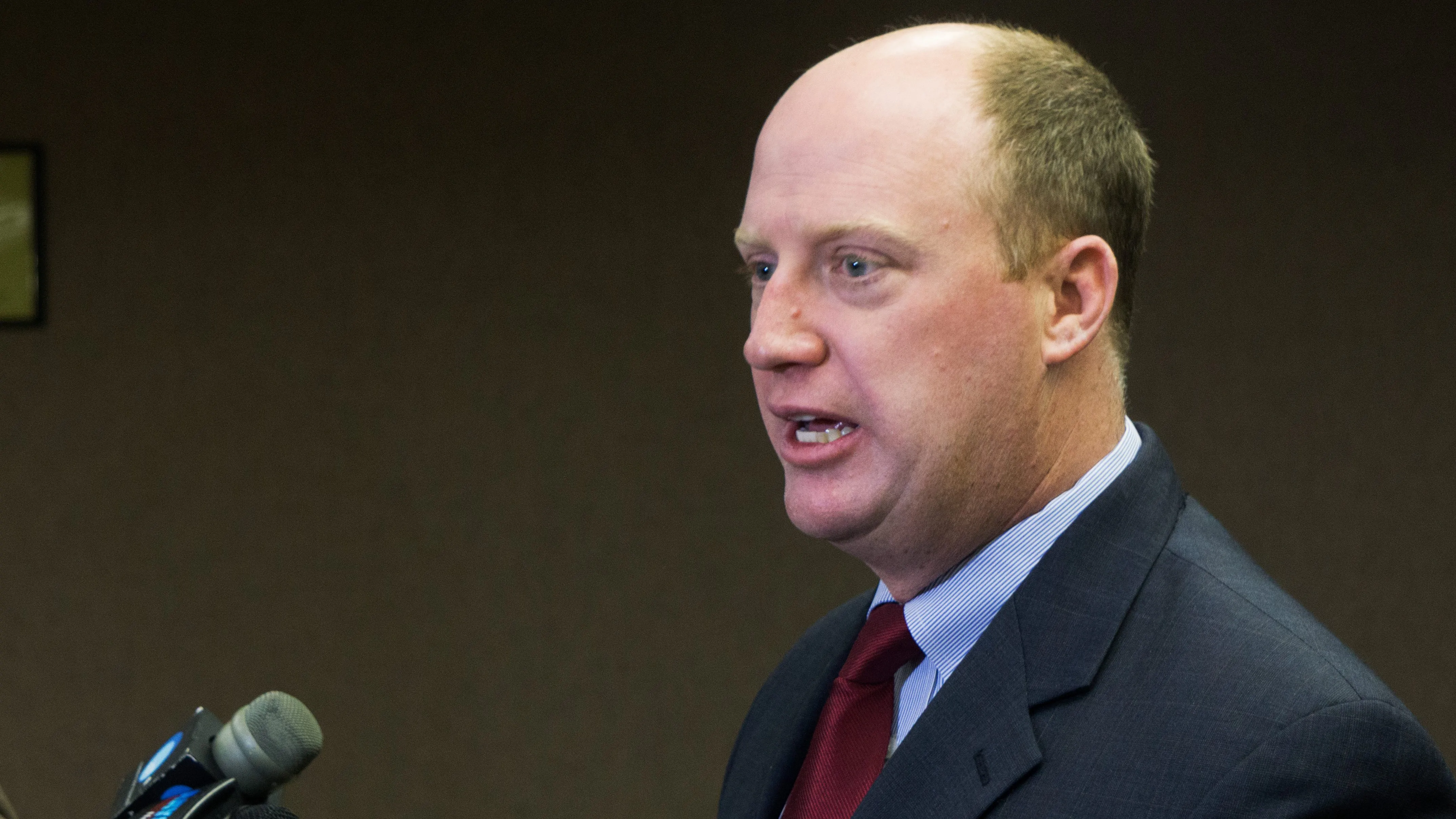An Alabama Small Business Commission subcommittee on Friday recommended Gov. Kay Ivey immediately reopen numerous businesses, with special caveats, in a “phase one” of a larger plan to reinvigorate the state’s economy amid the COVID-19 pandemic.
Lt Gov. Will Ainsworth, who leads the commission, and Alabama Rep. Danny Garrett, R-Trussville, held a press conference Friday to discuss the subcommittee’s “Reopen Alabama Responsibly” plan, which Ainsworth said has been given to Ivey.
The plan doesn’t address, however, what those businesses may need to do in the possibility that COVID-19 resurges in the future and cases increase. Ainsworth said during the conference that increasing testing and contact tracing, not closing the businesses down again, would be best.
“While we want to protect at all cost the health of our citizens, and that’s what this report is doing, there’s some stark realities,” Garrett said at the press conference. “Since March 16 over 300,000 Alabamians have filed for unemployment.”
Ainsworth said Alabama’s number of new COVID-19 cases has continued to slow down since April 3, the last day the state saw a 20 percent growth in new cases from the day before. On Thursday the state saw a 4 percent growth in confirmed COVID-19 cases from Wednesday, he said.
“That’s linear growth. That’s no exponential,” Ainsworth said.
As of Friday afternoon, there were 4,404 confirmed COVID-19 cases, 137 reported deaths and 553 hospitalizations, according to the Alabama Department of Public Health.
Among the report’s recommendations are to immediately open restaurants, small retail businesses, close-contact services such as barbershops and salons, child care services, racetracks, casinos and bingo halls.
The report recommends a May 1 reopening for medical, dental and physical therapy offices, but suggests employees be required to wear face masks and gloves, among other recommendations.
State beaches, gaming facilities, gyms, and entertainment venues are also recommended to reopen May 1, with special requirements for each, although Ainsworth said movie theaters, trade shows and other events with large crowds are not recommended to reopen.
Committee members suggest reopening youth baseball and softball, but that players wear masks in dugouts, concession stands remain closed.
“Coaches, players, parents, and attendees are required to practice responsible social distancing when and where possible, especially in common areas,” the report states.
The report’s recommendations include are that restaurants keep patrons six feet apart from one another, tables limited to six people, employees can wear masks at their discretion.
Small businesses are asked to limit customers inside the store to 50 percent of the fire capacity of the building, restrict employees with fevers or other COVID-19 symptoms from working and checkout lines marked for 6 feet of social distancing.
Garrett said while it’s hard to know what impact the partial shutdown is having on the state’s economy, some have estimated that it’s causing an approximately 20 percent reduction in state revenue, which would have a $400 million impact to Alabama’s general fund and $1.3 billion to the Education Trust Fund.
“We know there’s a mortality rate associated with COvID-19 and we understand the seriousness of that,’ Garrett said. “There’s also mortality rates and health impacts from a dire financial crisis.”
Garrett’s comments about financial crises causing deaths and health impacts are similar to comments made by President Donald Trump numerous times in which he has said an economic shut down will kill more people than COVID-19.
“You have suicides over things like this when you have terrible economies. You have death,” Trump said during a March 24 press conference.
Garrett said committee members talked with hundreds of business owners statewide before drafting the plan, which calls for business to work to protect workers and customers from the virus.
“As bad as they want to open, they want to open safely,” Garrett said.
Garrett said that committee members recognize a nationwide shortage of masks and other personal protection equipment will be a challenge to reopening businesses, but said “we do have opportunities in Alabama” and noted existing Alabama businesses may be able to provide some of that equipment.
Asked by a reporter at the press conference how enforcement of the recommended guidelines for restaurants would be enforced, Garrett said “there are several tiers to this.”
Garrett said the report’s recommendations now are with Ivey and Alabama’s state health officer Dr. Scott Harris, and “law enforcement will certainly be keeping an eye on it.” He also suggested the public report violations.
Asked what they would tell people concerned about going to some of these businesses once they reopen, Ainswsorth said, “I would say that you don’t have to go.”
“It’s optional. All we’re saying is let’s give the business owner a chance to actually make a living at the same standards that some of this box stores and other places have, and I think we can do that safely,” Ainsworth said.
A reporter asked if the report has recommendations on what business should do if there’s a future resurgence of COVID-19, Ainsworth said testing is key.
“The way you monitor this stuff going forward is get our testing capacity up,” Ainsworth said. He said the way forward is to not shut down a business because someone tests positive but to test everyone else in the business and anyone they’ve come into contact with, and anyone who has it is quarantined.
Asked again if they’d consider recommending reversing some of these recommendations if the virus resurges in greater numbers, Ainsworth again said testing and quarantining would be key to prevent the spread.
There have been problems in Alabama and across the country with a lack of tests, testing supplies and the personal protective equipment used by those who give them, however.
As of Friday afternoon, 37,848 of Alabama’s 4.9 million residents had been tested for the virus, which is less than 1 percent of the state’s population.
The recommendations drew praise from the Business Council of Alabama.
“BCA is proud to be a part of the great work being done by the Alabama Small Business Commission Emergency Task Force,” said BCA president Katie Boyd Britt in a statement. “The recommendations made in the Reopen Alabama Responsibly plan are a critical first step in revitalizing Alabama’s economy and getting citizens back to work in a safe and responsible manner.”
Ivey’s current order is in place until April 30. Ivey and Dr. Scott Harris are now charged with considering the report’s recommendations and deciding the next steps.



















































